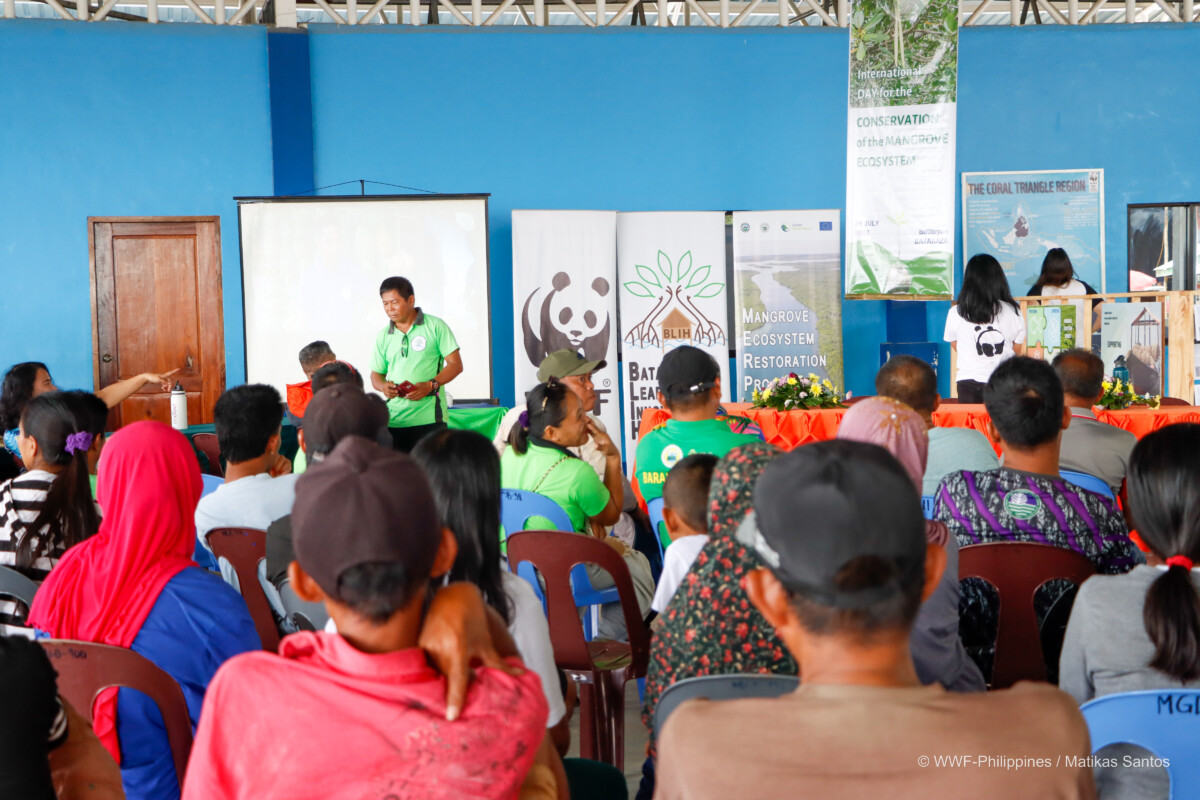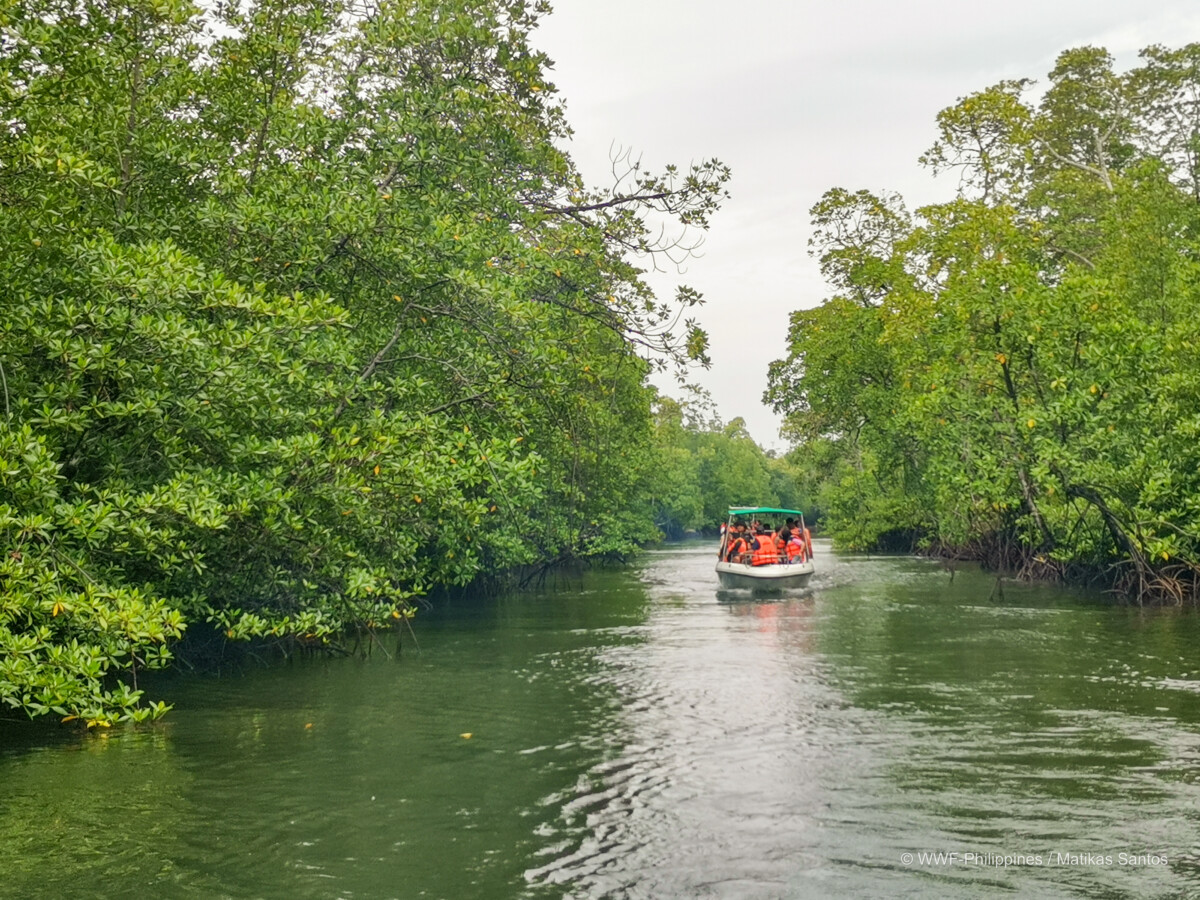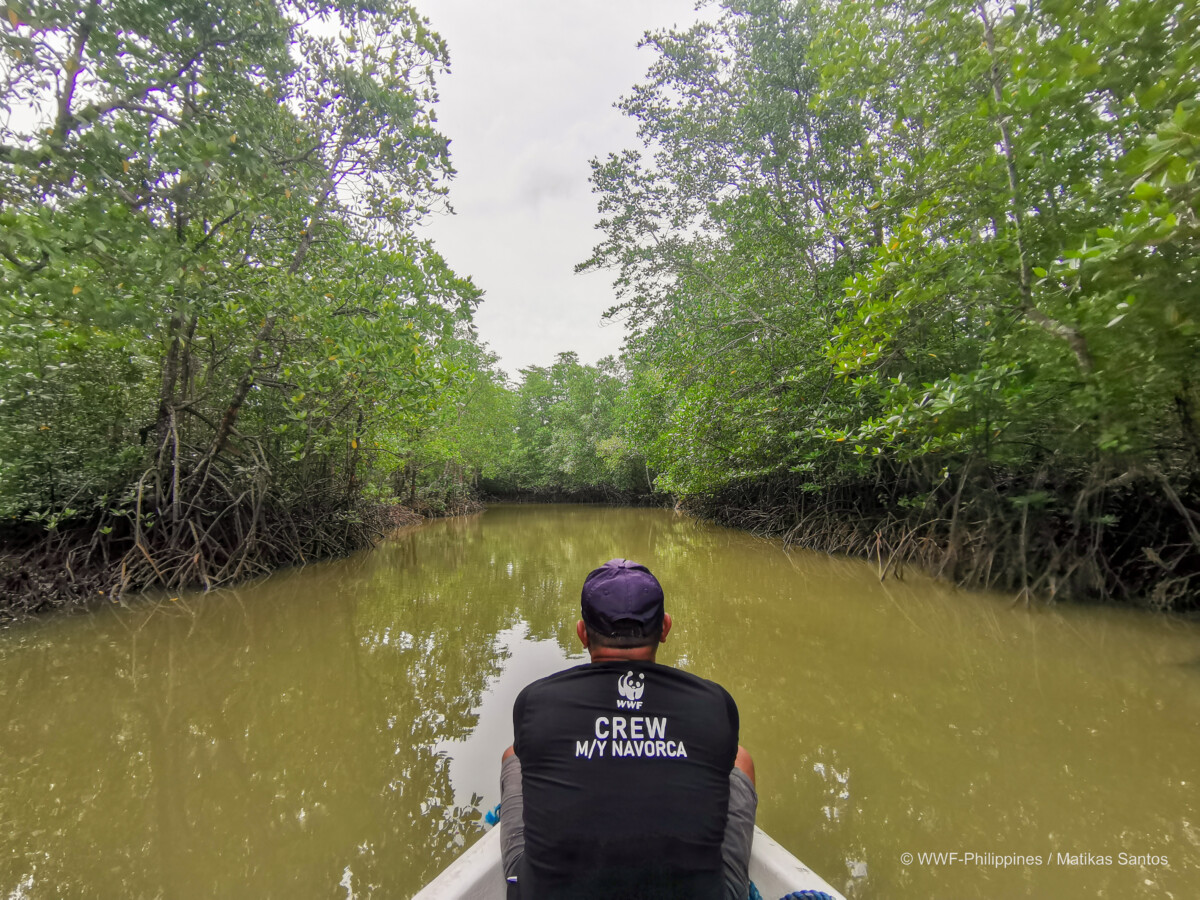WWF-Philippines, together with Epson, celebrates World Mangroves Day in Bataraza, Palawan

Project stakeholders and community partners gather at the Community Learning and Innovation Hub in celebration of World Mangroves Day.
Through the initiative of the World Wide Fund for Nature (WWF) Philippines, EU Ocean Governance Project, the local government unit of Bataraza, and in collaboration with Epson, the learning and innovation hub paves the way for the establishment of learning networks for the local community and will empower them to co-develop solutions to strengthen marine and coastal management and increase resilience to the impacts of climate change.
“This is just one step to our bigger commitment of reaching out to communities and continuing our support towards restoring degraded mangroves in the Philippines. Together with WWF, the dream doesn’t end here,” Epson Philippines President and Director Masako Kusama shares, underscoring the corporation’s goals to support projects that protect biodiversity, inspire collaborations, and improve lives in the Philippines and across the region.
The familiarization trip witnessed activities such as coastal clean-up and a mangrove tour organized through the Bataraza Learning and Innovation Hub under the Bataraza Mangrove Ecosystem Restoration Project. The coastal clean-up introduced citizen science for profiling waste and marine debris trapped in the mangroves. Data generated can help the communities to address this concern. On the other hand, the mangrove tour was an exposition of the potential of the mangrove ecosystem in the area to become a community-based nature tourism destination.
Aside from project stakeholders, this event was also participated by civil society groups, national agencies, local government departments, enforcement groups, and representatives from the project-assisted communities in Bataraza and Balabac. “Since the launch of The Bataraza Learning and Innovation Hub (BLIH) and the succeeding activities after it involving the local government unit, the community, the private sector including the academe, and civil society organizations, we are empowering communities by sharing and gaining knowledge and practice from each other,” Project Manager Mary Joan Pecson said.

Mangroves provide critical ecosystem services, from timber for fuel and housing, to nurseries for fisheries and are home to bees that produce wild honey. These coastal forests also act as a critical defence against severe storms and typhoons, which have become more frequent, intense and unpredictable as a result of climate change.
The component is part of WWF-Coral Triangle Programme’s bigger initiative in the Coral Triangle focusing on the Sulu-Sulawesi Seascape, a marine ecoregion shared with Indonesia and Malaysia, known for its rich and significant levels of marine biodiversity in this area. The project aims to create scalable conservation activities, primarily focused on restoring degraded or damaged coral reefs and mangrove areas. Through the restoration activities, best practices and lessons learned are cross-shared through the community learning and innovation hubs, and community champions are trained for co-management of restored and existing coral reef and mangrove areas.

Mangroves are critical in tackling the challenge of global warming due to their exceptional ability to absorb carbon. In fact, these unique coastal forests can absorb an impressive 3-4 times more carbon than traditional land forests.
Known as one of the nature-based solutions to addressing climate change, mangroves play a key role in ecosystems providing benefits for both nature and people. Mangroves store 7.5–10 times more carbon per acre (3–4 times more per hectare) than tropical forests, and their loss contributes to 10% of global greenhouse gas emissions from deforestation. Unfortunately, 62% of the world’s mangroves have been destroyed between 2000 and 2016.
“The destruction of our mangrove forests results in the decrease of our marine resources since part of their habitat has been destroyed,” said Bataraza Municipal Environmental and Natural Resource Officer, Mr. Reynaldo Rivera, EnP.
“Mangrove forests serve as filters and protection against siltation of the sea and coral reefs and also from the big waves reaching the shoreline, which may cause damage to residential houses and other properties. So, there is really a need for the rehabilitation of our mangrove forest,” he added, highlighting how the destruction of the mangrove swamps affects not only the environment and marine life but also the community.
Bataraza is one of the municipalities in the province of Palawan to house its own learning and innovation hub. Together with its partners, WWF-Philippines aims to further expand the initiative to neighboring municipalities to #ChangeTheEnding and build a more climate-resilient future for communities in Palawan.
About WWF:
WWF is one of the world’s largest and most respected independent conservation organizations, with over 5 million supporters and a global network active in over 100 countries. WWF's mission is to stop the degradation of the Earth's natural environment and to build a future in which humans live in harmony with nature, by conserving the world's biological diversity, ensuring that the use of renewable natural resources is sustainable, and promoting the reduction of pollution and wasteful consumption.
WWF-Philippines has been successfully implementing various conservation projects to help protect some of the most biologically-significant ecosystems in Asia since its establishment as the 26th national organization of the WWF network in 1997.
For media arrangements, please contact:
Ms. Chezka Guevarra
Assistant Manager for External Communications and Ambassador Programs
09276566436
cguevarra@wwf.org.ph
